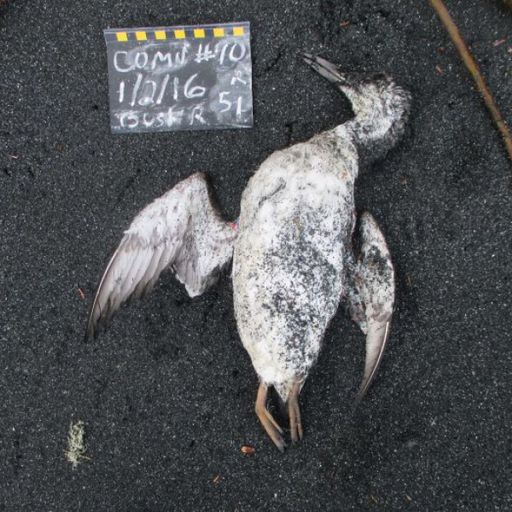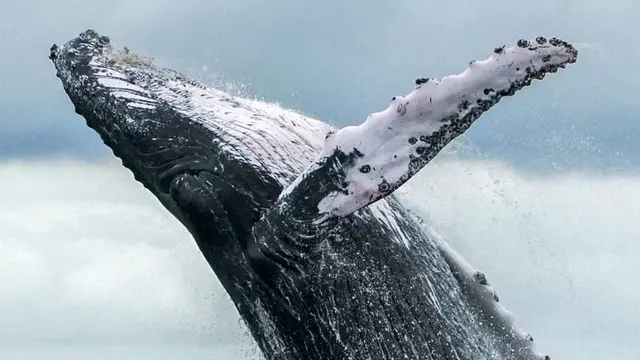A heatwave known as the "Blob" off the west coast of America has caused a 550% increase in the number of whales getting tangled in commercial fishing equipment, new research shows.
The 2014-2016 heatwave in the Pacific Ocean has caused whale feeding behaviours to change, leading to the dramatic jump in the span of three years.
The record-breaking marine heatwave reached roughly 2,000 miles (3.200km) across at its peak, was 300ft (91m) deep and around 2.5 degrees Celsius (4.5 F) warmed than the water around it.

One million birds feared dead due to 'blob' heatwave in Pacific
According to the researchers, the heatwave caused the cooler nutrient-rich waters which sustains large populations of prey such as krill, anchovy and sardines to pool inshore rather than flow out into the ocean.
"Predators that are normally more spread out offshore all moved inshore because that's where the food was," said Dr Jarrod Santora of UC Santa Cruz.
"Krill populations always take a hit during warming events, but we started to see an increase in anchovy.
"Humpback whales are unique in their ability to switch between krill and small fish, so during those years they moved inshore after the anchovy."
Chasing after the anchovy meant that humpback whales shifted in large numbers into areas they didn't normally go, and this made them much more likely to run into commercial crab fishing equipment.
A record bloom of toxic algae - again prompted by the heatwave - had shut down crab fishing on the West Coast from November 2015 until March 2016.
When the toxin levels dropped, the crab fishers set their traps in the same narrow band where, unbeknownst to them, all of the humpback whales were feeding.
Entanglements had previously stood at about 10 per year before 2014 but increased to 53 in 2015 and then 55 in 2016.
"All this gear was going out right during the peak arrival of whales, so that made things worse," Dr Santora said.
"But 2016 is not the whole story. We started to see an increase in whale entanglements in late 2014, well before the delayed crab season, and that was due to the habitat compression along the coast."
The findings are published in two related research papers in the journal Nature Communications by researchers at the University of California, Santa Cruz, and the US National Oceanic and Atmospheric Administration.
 简体中文
简体中文





